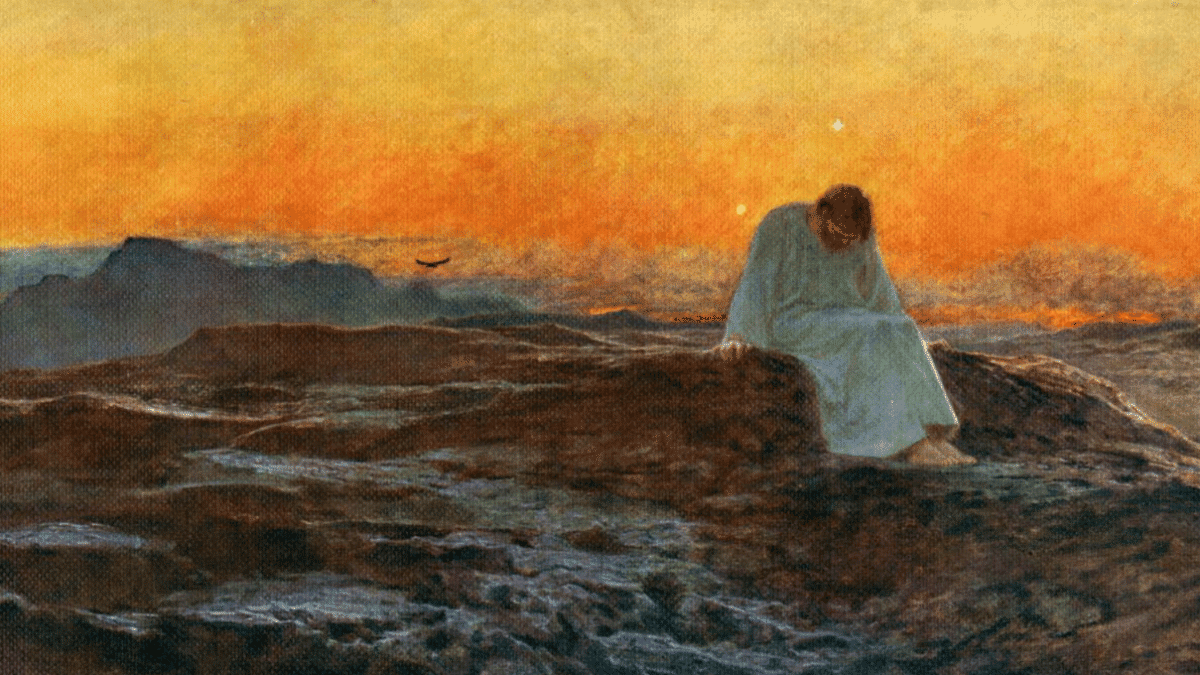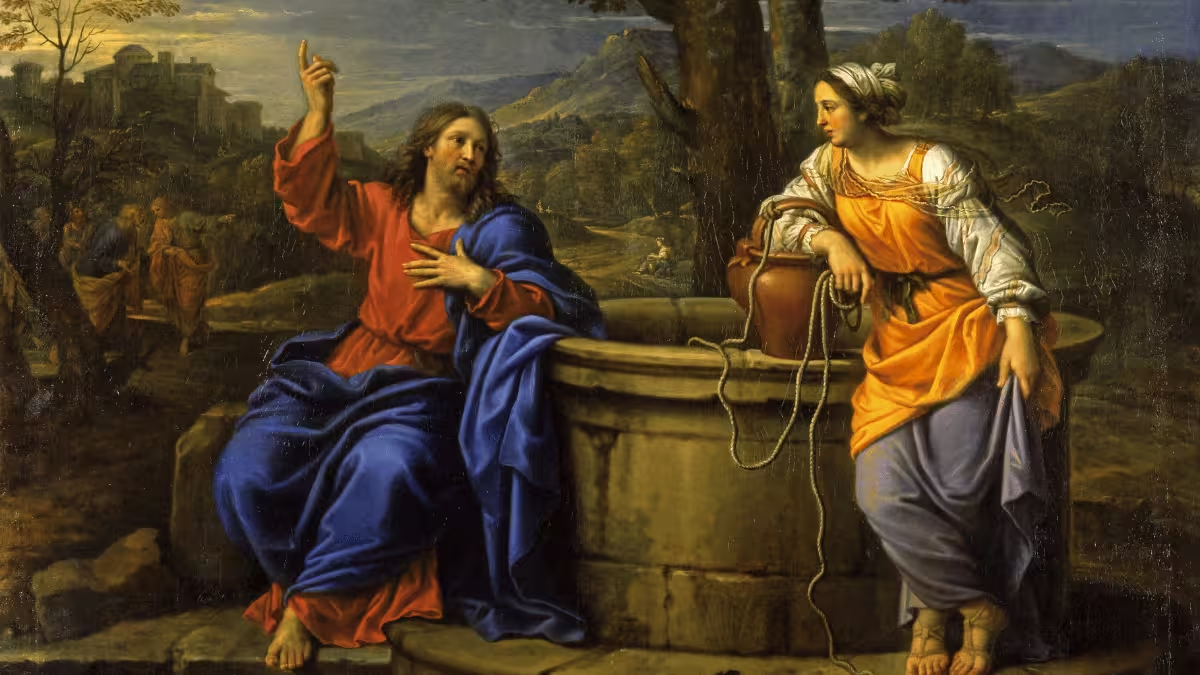Bible on the Back Porch
Reading, pondering and studying God’s Word is sometimes best done “on the back porch.” Each week we will try to offer something for you and your “back porch time.”

4th Sunday, Year A

The Beatitudes
The gospel for this Sunday is the “Sermon on the Mount”, actually only the portion known as the Beatitudes. The disciples are gathered, but so too are people in general who have come to hear Jesus speak. The nature of the audience raises a basic question: what are the Beatitudes? Are the general ethic that God asks of he People of God? Is is a message about discipleship? Martin Luther thought it was an impossible demand like the Old Testament Law.
As always, a lot going on in the gospel reading. Grab a cup of your favorite beverage and take a moment on the back porch with the Word of God. Some think it is a description of the millennial kingdom for when Jesus returns. There is not shortage of views of “what they are.” And then we arrive at thee question of “what do they mean?”
As always, the living Word of God has a lot to ponder. Grab your favorite beverage and take some time of the back porch.
Full Text of the Sunday Gospel
Detailed Commentary
Image credit: Cosimo Rosselli Sermone della Montagna, 1481, Sistine Chapel, Public Domain
5th Sunday, Year A

Salt and Light
The gospel for the 5th Sunday of Ordinary Time, Year A is a part of the “Sermon on the Mount”,following immediately after the portion known as the Beatitudes. Famously, Jesus used the metaphors of “salt” and “light” to describe the nature and challenges of discipleship. Why those elements? Did they have a deeper and more robust meanings to the 1st century listener? Modern folks don’t have to think about salt – it is on the shelf of any grocery store. LIght? Flick a switch without giving it a second thought. Maybe we have lost part of the message along the way?
As always, a lot going on in the gospel reading. Grab a cup of your favorite beverage and take a moment on the back porch with the Word of God – and go back in time to the world of the first century. Grab your favorite beverage and take some time of the back porch.
Full Text of the Sunday Gospel
Detailed Commentary
Sermon on the Mount (1877) by Carl Heinrich Bloch | Museum of National History |
Frederiksborg Castle, Public Domain
6th Sunday, Year A

"You have heard it said..."
The gospel for the 6th Sunday of Ordinary Time, Year A is a part of the “Sermon on the Mount.” It follows the Beatitudes and Jesus’ use of the metaphors of “salt” and “light” to describe the nature and challenges of discipleship. Next Jesus speaks to the importance of the Law but begins to teach how to rightly understand the whole of Scripture: “the Law and the Prophets.” It is a rich teaching, complex, but one that continues to deepen the understanding of discipleship and reveal how Jesus himself is the fulfillment of all the promises of Scripture
As always, a lot going on in the gospel reading. Grab a cup of your favorite beverage and take a moment on the back porch with the Word of God – and go back in time to the world of the first century. Grab your favorite beverage and take some time of the back porch.
Full Text of the Sunday Gospel
Detailed Commentary
Sermon on the Mount (1877) by Carl Heinrich Bloch | Museum of National History |
Frederiksborg Castle, Public Domain
1st Sunday of Lent, Year A

"Then Jesus was led by the Spirit...."
The gospel for this first Sunday in Lent comes from either Mark, Luke or Matthew and tells of Jesus temptation (…or is it a testing?) in the wilderness. There is continuity with the scene immediately before – the baptism of Jesus in the Jordan River. The temptation is connected by the words “Spirit,” “wilderness,” “Son of God” and the obedient response of the Son to the Father’s will. This scene in the wilderness sets the plot for the whole of Matthew’s narrative in that this encounter with Satan in only prelude to the resistance that Jesus will face in proclaiming the Kingdom of Heaven.
As always, a lot going on in the gospel reading. Grab a cup of your favorite beverage and take a moment on the back porch with the Word of God – and go back in time to the world of the first century. Grab your favorite beverage and take some time of the back porch.
Full Text of the Sunday Gospel
Detailed Commentary
The Temptation in the Wilderness, Briton Rivière (1898) | Public Domain
Why God Tests His People
All the gospel accounts use the word peirazo. Translators have to decide if the word means “to test” or “to tempt”. It has both meanings. In a “test” the tester is not trying to fail people, but to determine what they know or to let the one being tested discover what they truly know. In a “temptation” the tempter is hoping for failure. Is Jesus tempted or tested? What about us? Take a moment to watch this 6-minute video on the question.
2nd Sunday of Lent, Year A

"He was transfigured before them...."
The description of the Transfiguration is brief—just the first three verses of Matthew 17. But the incident becomes the context for two significant incidents for the disciples. In the first, Peter’s hasty response to the glory of the Lord (…make three tents) is corrected by the same heavenly voice heard at Jesus’ baptism (17:4–8; cf. 3:17). In the second, Jesus once again forbids the disciples to make him known (cf. 16:20), which leads to their question about the future coming of Elijah (17:9–13). Thus, the passage contains the transfiguration proper (17:1–3), a lesson on the fulfillment by Jesus of all that is promised in the Hebrew scriptures (17:4–8), and a lesson on the continuity of John the Baptist with Elijah of old and with Jesus himself (17:9–13).
As always, a lot going on in the gospel reading. Grab a cup of your favorite beverage and take a moment on the back porch with the Word of God – and go back in time to the world of the first century. Grab your favorite beverage and take some time of the back porch.
Full Text of the Sunday Gospel
Detailed Commentary
Image credit: Sunrise, Simon Berger, Pexels, CC
Why this gospel?
By the Second Sunday of Lent, the Church wants us to be very clear about where this road leads. In every Synoptic Gospel, the Transfiguration occurs after Jesus has spoken about suffering, rejection, and death. The disciples have just heard words they do not want to hear. Confusion and fear have entered the picture. The Transfiguration does not cancel the Cross. It reveals who Jesus is as he goes toward it. Lent is not about grim endurance for its own sake. It is about learning to walk with Christ through suffering, trusting that God’s glory is not absent from it.
3rd Sunday of Lent, Year A

The Woman at the Well
The story of Jesus and the Samaritan Woman at the well is one of St. John’s best known stories. It is rich is meaning with layers and layers of theology, Christology, but most of all it is a story of conversion – a story in which the woman’s deepest thrirst is brought to Jesus who satisfied her longing to more deeply know God. You are strongly encouraged to take a time to read the detailed commentary and explore all the riches of this story.
As always, a lot going on in the gospel reading. Grab a cup of your favorite beverage and take a moment on the back porch with the Word of God – and go back in time to the world of the first century. Grab your favorite beverage and take some time of the back porch.
Full Text of the Sunday Gospel
Detailed Commentary
Christ and the Woman of Samaria | Pierre Mignard, 1681 | The North Carolina Museum of Art, Raleigh | PD
Why this gospel?
The Church’s choice of the Samaritan Woman at the Well (John 4) for the 3rd Sunday of Lent (Year A) gospel is deliberate, and deeply pastoral. It sits at the heart of Lenten gospels not by accident, but because it reveals what Lent is for: Lent is a journey of conversion and this is a conversion story.
By the 3rd Sunday of Lent, the Church has moved beyond the opening call to repentance in the first two Sunday gospels and into the interior work of conversion. But it is important to note that the Samaritan Woman’s story is not about moral failure first; it is about thirst. She comes to the well at noon alone, exposed, avoiding community. She is searching for water, but what she really desires is dignity, belonging, and peace. Jesus does not begin with accusation; he begins with relationship. Lent, at its core, is about allowing Jesus to name our deeper thirsts and redirect them toward God.
Historically, this Gospel is tied to the Scrutinies for those preparing for Baptism at Easter. In the early Church the 3rd, 4th, and 5th Sundays of Lent were explicitly baptismal Sundays. The Samaritan Woman represents everyone who approaches Baptism thirsty but uncertain, carrying a past yet open to transformation. As such water dominates the story: ordinary water vs. living water, the well vs. the spring within, and drawing water vs. receiving life. The Church proclaims this Gospel to say: Baptism is not just cleansing — it is the gift of a new source of life.
Another theme of this reading appropriate to Lent is that Jesus reveals himself gradually to the woman, as He does to us. Notice the slow unfolding of Jesus’ identity: a Jewish man, a prophet, the Messiah, and finally, “I am he.” This mirrors how faith grows during Lent. Conversion rarely happens all at once. It unfolds through dialogue, resistance, misunderstanding, and trust. The Church places this Gospel here to reassure us that faith deepens through honest encounter, not instant certainty.
One of the most striking elements of this Gospel is its movement: she comes alone, she leaves her jar behind, and she returns to the town as a witness. This is the shape of Christian conversion: encounter, healing, and mission. On this Third Sunday of Lent, the Church wants us to see that repentance is not about withdrawal or self-loathing, but about being sent back into life differently.
That movement is consistent with a theme that carries across all Scripture – new and old: the crossing of boundaries. Jesus crosses multiple boundaries: Jew and Samaritan, man and woman, and righteous teacher and morally compromised listener. This matters deeply in Lent, because conversion always involves allowing God to challenge our categories: who belongs, who is worthy, and who can speak for God. The Samaritan Woman becomes the first missionary to her people; a reminder that grace is never earned and never limited.
There is a rhythm to the Lenten Sundays gospels in Year A. On the 1st Sunday the story of Jesus’ Temptation asks us to choose whom we will serve. On the 2nd Sunday, the Transfiguration, we are asked to see who Christ really is. Now on this Sunday, the story of the Samaritan Woman asks us to recognize our thirst and receive living water. By the Third Sunday, the Church is saying: You cannot walk toward Easter without first confronting what you truly thirst for.
Finally, this Gospel is well chosen because it speaks powerfully to ordinary human experience of broken relationships, unmet desires, spiritual fatigue, and longing for something more. Jesus does not shame the woman. He knows her fully and remains present to her. That is the Lenten promise to all of us. By this Sunday, the Church gently asks each of us: “What are you really thirsting for — and are you ready to let Christ satisfy it?”